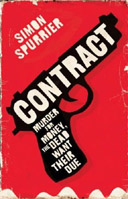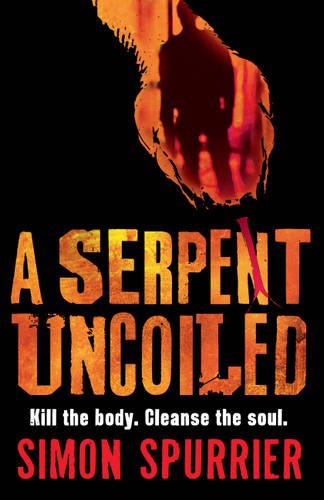
These days I tend to lie about what I do for a living. Partly it’s a giggle to see how far people’s politeness will stretch before crying foul, but that’s not the main reason I do it.
(Badger farmer. Torpedo Tester. Carrot Thrower.)
It’s not that I’m ashamed or embarrassed by my career. On the contrary, I’ve spent the majority of my life wanting, trying, and frequently fighting like a rabid weasel to become a novelist.
(Forehead Decorator. Pigeon Wrangler. Coathook Bender.)
Nor do I tell these fibs as a result of discovering that conversations on the subject of writing – the day-to-day routine of Sitting In One Place And Making Shit Up – tend to be a lot more boring than people imagine.
(Leaf Counter. Karmic Accountant. Concrete Taster.)
No: I lie about my job because – in my case – telling the truth results in a cascade of very particular follow-up questions (“Oh yeah? Had anything published, have you?”; “Much money in that, is there?”; and eventually “how long’s it take to write a book, then?”). I’ve found that such queries lead, with slippery inevitability, to an uncomfortable chat about why there exists a 4-year gap between my first novel – Contract – and the grime-smeared murderchill I only recently released: A Serpent Uncoiled. As it happens the explanation revolves around the nature of publishing conventions, the thorny issue of genre, and the condition of the bookselling market: worthy subjects all. And whereas I hope Said Rant is at least slightly interesting, I’ve recounted it so many times – with varying degrees of bitterness and blame – that these days it’s easier to simply avoid.
(Dolphin Counsellor. Cutlery Tamer. Magnetic-Field Straightener.)
So. Today I will set it down once and for all, in the hopes it’ll gift some wouldbe scribes out there with foresight, and grant me a handy “go read this” clause next time the conversation arises. Behold, then, my maggoty catharsis.
 My first novel, Contract, was considered “interesting”. Oh, not in the Avoidance-Of-A-Pejorative-Adjective sense (cf: “New Haircut”), I stand by it with all the passion and loyalty I had when it was first released. Writing Contract was some of the most fun I’ve ever had while clothed, and the overwhelming majority of readers – and reviewers – waxed complimentary about its unexpected depths. No: the “interesting” tag arose from Contract’s defiance of all standard conventions: of genre, of style, of tone. Accordingly it stood as a migraine-emitting Problem for every agent, publisher and P.R.-person whose desk it crossed.
My first novel, Contract, was considered “interesting”. Oh, not in the Avoidance-Of-A-Pejorative-Adjective sense (cf: “New Haircut”), I stand by it with all the passion and loyalty I had when it was first released. Writing Contract was some of the most fun I’ve ever had while clothed, and the overwhelming majority of readers – and reviewers – waxed complimentary about its unexpected depths. No: the “interesting” tag arose from Contract’s defiance of all standard conventions: of genre, of style, of tone. Accordingly it stood as a migraine-emitting Problem for every agent, publisher and P.R.-person whose desk it crossed.
Contract is a story about a London-based Hitman whose neurotically-researched methods of committing murder are disrupted when his victims start coming back to life. Possibly he’s undergoing a catastrophic hallucinogenic episode; possibly he’s embroiled in a supernatural grudgewar; either way he’s in trouble. To Less-Cynical-And-Less-Wise Me – slapping at his keyboard with a big grin four years ago – Contract was a mixing-bowl of exciting elements, cunning plots and humour blacker than a chainsmoking shadow. Just to make things even more “interesting” the rule-breaking little bastard wrote the whole thing from an idiosyncratic first-person perspective, then scattered it with diary-entries flatly contradicting the protagonist’s account.
“Interesting,” see?
Now: before it starts to look like I’m deliberately disembowelling my own work, let me state that I love Contract with every crusty little corner of my heart. As, by the way, did every publisher I sent it to: page upon page of frothy praise. Alas, every single one ends in an embarrassed little sentence of the form: “…however, it’s difficult to imagine how a novel so hard to define in genre terms could be practically marketed, and for this reason we must reluctantly” etc etc.
Even when I discovered a literary agent brave enough to stand by her conviction in the work’s quality, she was obliged to patiently prise-open my eyes at our first meeting.
“Imagine a bookstore,” she said. “What shelf is Contract sitting on?”
Crime? Fantasy? Horror? Contemporary Literature?
I believe I simply gurgled at that. It had never occurred to me that such considerations had anything to do with the role of the writer. All we do is make stuff up, right? Surely it’s someone else’s job to sell it?
Wrong, wrong, wrong.
(Wigwam Architect. Ice Burner. Punctuation Salesman.)
We got lucky, in the end. We found an editor at Hodder Headline who loved the manuscript, and whose remit was specifically to seek books which “fell between the cracks”. Contract was fostered to completion, launched with a revolutionary online campaign, and received a torrent of wonderful feedback. And I, who’d been awarded a two novel deal, bustled-off like a cream-bearing-cat to write a second volume of genre-buggering, convention-knackering fun.
And then the economy burped-up its own lungs. The prevailing wisdom of the day – that a debut writer requires investment and support across several pieces of work before cache starts to pay-off – dissolved like lemony urinal soap. And then, after a year of work, my new novel was confidently submitted for approval. Every creepy, eccentric, “interesting” page of it. And then reality nutted me between the eyes.
See, Contract had sold… decently. Respectably enough, given its unconventionality, but nothing industry-shattering. Booksellers didn’t know where to put it. Reviewers didn’t know whose department it belonged to. Readers couldn’t be sure it’d suit their tried-and-tested tastes without first buying the bloody thing, which isn’t a risk everyone cares to take. Oh, Contract has a whacking-great picture of a gun on the jacket and thus was broadly identified as “crime”, but genre-conventions are so deeply entrenched that a story’s objective quality all too often pales behind the reader’s outrage at Infractions Against Tradition. The worst reviews Contract received contained the line “not what I was expecting”, which depressed me far more than the most venomously deconstructive critiques out. I was sure that in a perfect world “not what I was expecting” would be a bloody good thing.
Contract, in short, was deemed “weird.”
The new novel I was trying to submit? Even weirder. Even tougher to define. Even more problematic to market. Whether it was actually any good or not seemed a moot point: it was simply too – ha – “interesting” to be risked in a tidily-compartmentalised market.
Long story short: I wasted a year, and was reacquainted with the proverbial Drawing Board.
(Wallpaper Painter. Urban Lifeguard. Motivational Runner-Up.)
I could vent some mitigating bile in my defence, but really the whole thing was my own fault. Canning that novel was a good call. It would’ve sold for shit, it would’ve sealed my problematic reputation, and that would’ve been the end of my time amidst the halls of influential publishers. Oh, I’m not angling for sympathy here. I’m explaining all this because at its inky heart is a lesson I was glacially slow to learn.
Writers, especially those of us too new to rely on readers’ blind loyalty, simply don’t have the luxury of ignoring trends. This is a business, folks. Unless you’re astonishingly lucky, that hoary old maxim about “just write for an audience of You” is a crappy recipe for success.
Listen: if the idea of getting your work into the hands of the largest possible number of readers is even remotely important to you – and I concede that’s not the case with every wordist out – then it’s simply not enough to be passionate. It’s not enough to be a fount of exquisite ideas, snowflake uniqueness and airtight integrity.
(Yes, yes, I know: these days you can self-publish online. That’s a splendid, worthy and rapidly-strengthening option which – in time – may well overturn every shred of all this bitter-tasting wisdom… But right now? Right now a widely-read success in the self-pub world is even more dependent on cosmically-improbable luck than its papery precursors.)
So. You may not give two hoots about genre conventions. You might truly believe, as I did, that the more tightly we constrain our ideas inside arbitrary barriers the more stifled and stagnant they become. But the way the market works… the way distributers and retailers and publicists and reviewers and above all else readers work: you basically don’t get to choose. People know what works for them, at every stage of the process. Why would they take crazy chances?
It took me another year to figure all that out. It took me another year of writing comicbooks to drag myself from the financial abyss; all the while trying to decide what I could do about all this stuff.
That, oh troubled reader, is why there was such a big gap between Contract and my new novel.
A Serpent Uncoiled, y’see, is precisely What I Did About It.
There’s an Act 3 to all this. It really needn’t be all doom and gloom. It turns out there is space for unconventional writers in a conventional marketplace – just as long as they’re canny about it.
(Snail Re-homing Agent. Vegan Abattoir Manager. Amoeba Taxidermist.)
 After the catastrophe with “Interesting” Novel#2, my publisher sent me home with a list of exemplar crime titles. Any wordsmith worth their salt knows it’s impossible to write unless one also reads – that’s about the only mistake I never did make – though in my eclectic bumblings between genres I’d spent shamefully little time in the company of “straight” crime. The Stack – as it came to be known – featured everything from pulp classics to modern bestsellers, with every recognised subgenre amidst its strata: gun-toting thrillers, historical mysteries, political intrigues, gangland grimmery, locked-room puzzles, whodunits, howcatchems...
After the catastrophe with “Interesting” Novel#2, my publisher sent me home with a list of exemplar crime titles. Any wordsmith worth their salt knows it’s impossible to write unless one also reads – that’s about the only mistake I never did make – though in my eclectic bumblings between genres I’d spent shamefully little time in the company of “straight” crime. The Stack – as it came to be known – featured everything from pulp classics to modern bestsellers, with every recognised subgenre amidst its strata: gun-toting thrillers, historical mysteries, political intrigues, gangland grimmery, locked-room puzzles, whodunits, howcatchems...
I won’t lie: I didn’t enjoy them all. Some seemed only to confirm my worst cynicisms: so determinedly formulaic they took-on the fusty air of ritual, until every twist was not only predictable but seemed wearily obedient. But by far the majority of the Stack was a revelation. In its teetering tomes I discovered far more breadth of colour, narrative daring and cleverness than I’d ever hoped. Ultimately, regardless of how well or little I enjoyed each title, I began to… well. To absorb.
That’s the trick. You don’t need to feel constrained by a genre if it’s sunk into your blood. You let the reader’s expectations settle in your guts until they’re intuitive. You sponge it all up until the conventions of the form are an unconscious part of your toolkit—
—and then you twist those fuckers right round.
Oh, they look the same. All the ingredients are still there. The dedicated reader of conventional Crime Fiction can read the piece without fear: without risk of being ripped from their comfort-zone by unexpected tramplings on the Unwritten Rules. But under and around every line, every plot point, every resolution, you get the chance to inject a secret tension. An oh-so-gentle vibration of something... yeah: “Interesting”.
I tend to describe A Serpent Uncoiled as “a murder mystery with a spooky undertone.” I like think all the ingredients are in place; every trope and twist delivers, and it’s all set firmly in a recognisably real world. The barrage of embarrassingly good reviews we’ve had, since release, seems to bear that out. But to me it’ll always be more than that: more personal, more satisfying, than Just Another Murder Story. It riffs on ideas I never thought I could reconcile with the trends of the crime genre. It tilts conventional detective/crime relationships so far upside-down they come back round to the start. I got the chance to spike out-of-place concepts into the mix like a secret intravenous dose.
If writing Contract was fun, writing A Serpent Uncoiled was bliss. It was, for me, very worth the wait.
(Solar-Flare Critic. Brick Sculptor. Carpet Shaver.)
Bottom line: the constraints of genre needn’t be a struggle. Don’t violate the conventions, seduce them. Don’t shock and outrage readers, corrupt them. Be gentle, be mischievous, and be as sinister as you bloody well like. It turns out “give ‘em what they want” and “write for an audience of You” don’t have to be mutually exclusive.
Ultimately I lie about what I do for a living because it’s a hell of a lot easier to persuade someone you’re an Avian Dentist, or a Circle Designer, or a Pram Test-pilot, than to explain the truth.
I’m a Weirdist camouflaged as a mainstream writer.
Find out more at Simon's webite